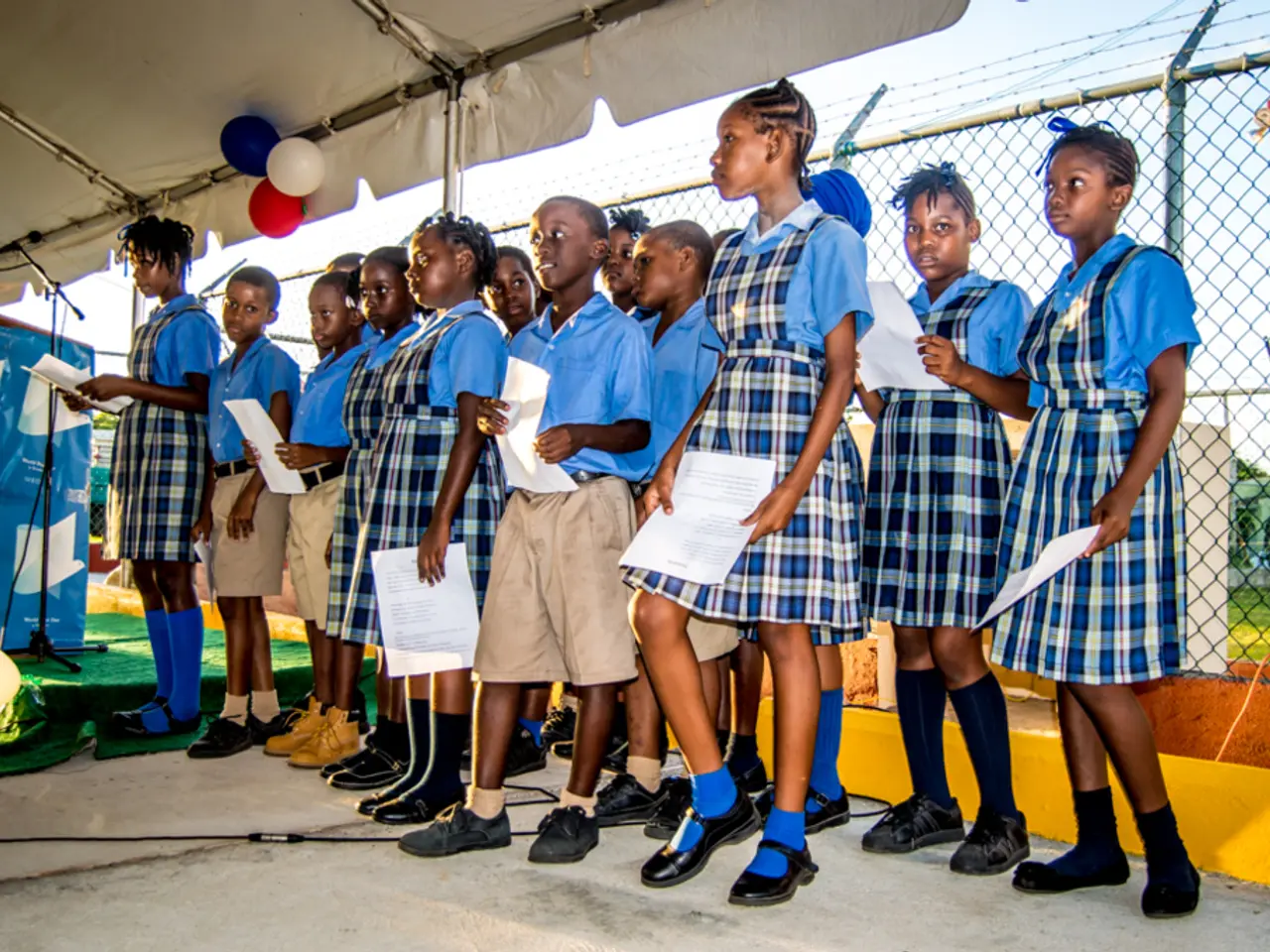Tech Companies' Profits at Stake as School Districts File Lawsuits Over Students' Mental Health Concerns
In a significant move, school districts across the United States are pursuing legal action against major tech companies, including Meta (Instagram, Facebook), Google (YouTube), ByteDance (TikTok), and Snap Inc. (Snapchat), over allegations that their platforms are contributing to mental health issues among students.
Current Status of Legal Strategies
The lawsuits, consolidated in a federal Multi-District Litigation (MDL) in Northern California, focus on claims that these companies knowingly designed addictive platforms targeting children and teens and failed to warn or protect vulnerable users. Six school districts, including Harford County Schools, have been selected as "bellwether" cases to serve as test trials for claims of addiction, mental health harm, and associated costs.
Legal Claims and Goals
The lawsuits argue that social media algorithms exploit young users' brains similarly to addictive substances, worsening depression, anxiety, suicidal tendencies, and overwhelming school mental health resources. Schools seek compensatory damages to cover the extraordinary costs of mental health services and to compel companies to alter platform features to reduce harm.
Court Rulings
Recent rulings have kept key claims alive, including negligence and wrongful death causes, rejecting motions to dismiss and allowing lawsuits to proceed toward trial.
Focus on Corporate Accountability
The social media lawsuits focus on corporate accountability for system-wide harm, particularly when vulnerable populations like children are involved, and institutions like schools are forced to respond without adequate resources. Internal documents made public in state-level lawsuits show that Meta knew Instagram was contributing to negative mental health outcomes in teens but continued to prioritize features that maximized engagement.
State-Level Legislation
State-level legislation in New York and California is limiting phone use during school hours and exploring stronger digital protections for youth. Seattle Public Schools filed the first major case in 2023, and more than 500 districts have joined similar suits, including Houston ISD, the largest district in Texas.
Implications and Future Developments
The litigation appears poised for continued development through the late 2025 trial schedule and beyond. The first bellwether trial is scheduled for November 25, 2025, with more to follow. These trials are expected to clarify liability, causation, and potential damages, setting precedents for wider litigation or encouraging settlements.
The legal action against tech giants is following a similar path as legal action against industries that profit from public harm, such as the opioid crisis and PFAS contamination cases. Public school districts across the U.S. are suing tech giants not to ban technology, but to acknowledge that some of the most powerful companies in the world have created tools that shape how young people think, feel, and connect, and that those tools have consequences.
Without legal pressure, there is little incentive for tech companies to slow down their growth engines or redesign systems that keep kids coming back, even when it causes psychological harm. The cost of the youth mental health crisis continues to land on public schools and the children they serve, and meaningful changes in platform design, business incentives, and corporate responsibility are needed to address this.
Teen mental health has been deteriorating for the past decade, with schools often acting as the first and only line of defense. Some districts now require students to lock phones in magnetic pouches at the start of the day. Administrators are trying to adapt by expanding mental health staffing, offering digital literacy programs, and confiscating phones during the school day. Conflicts that start online (bullying, image sharing, AI-enhanced harassment) are increasingly playing out at school.
According to the U.S. Surgeon General, nearly half of adolescents say social media makes them feel worse about their body image. The lawsuits are a significant step towards addressing the mental health crisis among young people, with the potential to bring about meaningful changes in platform design, business practices, and corporate responsibility.
- Schools, as part of their pursuit for mental health and wellness, are now advocating for science-based research to develop digital literacy programs that help students navigate social media platforms, aiming to reduce negative impacts on their mental health.
- In light of the growing concerns about the impact of social media on mental health, education and self-development institutions are collaborating to push for policies and initiatives that prioritize the well-being of youth, ensuring a healthier and more balanced digital future.




